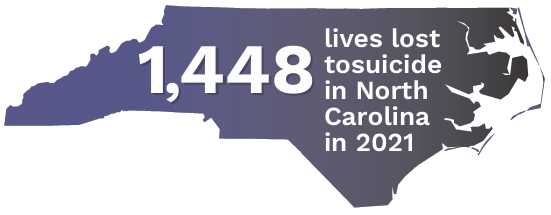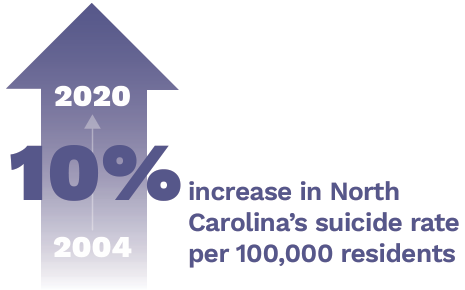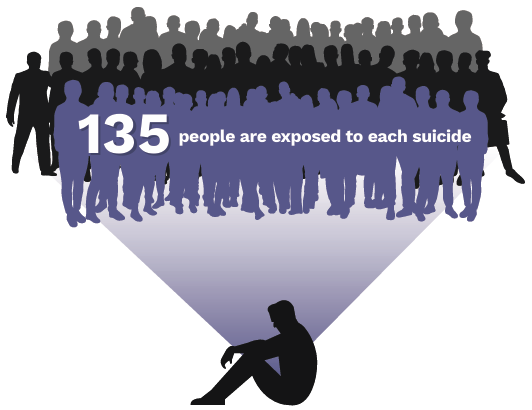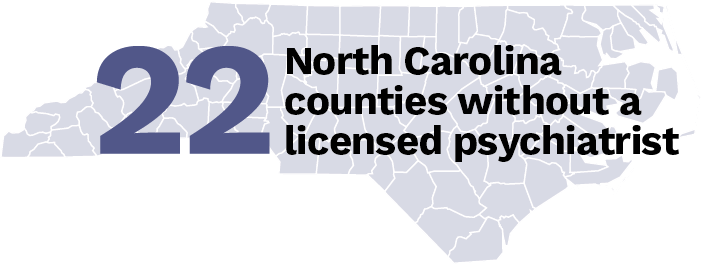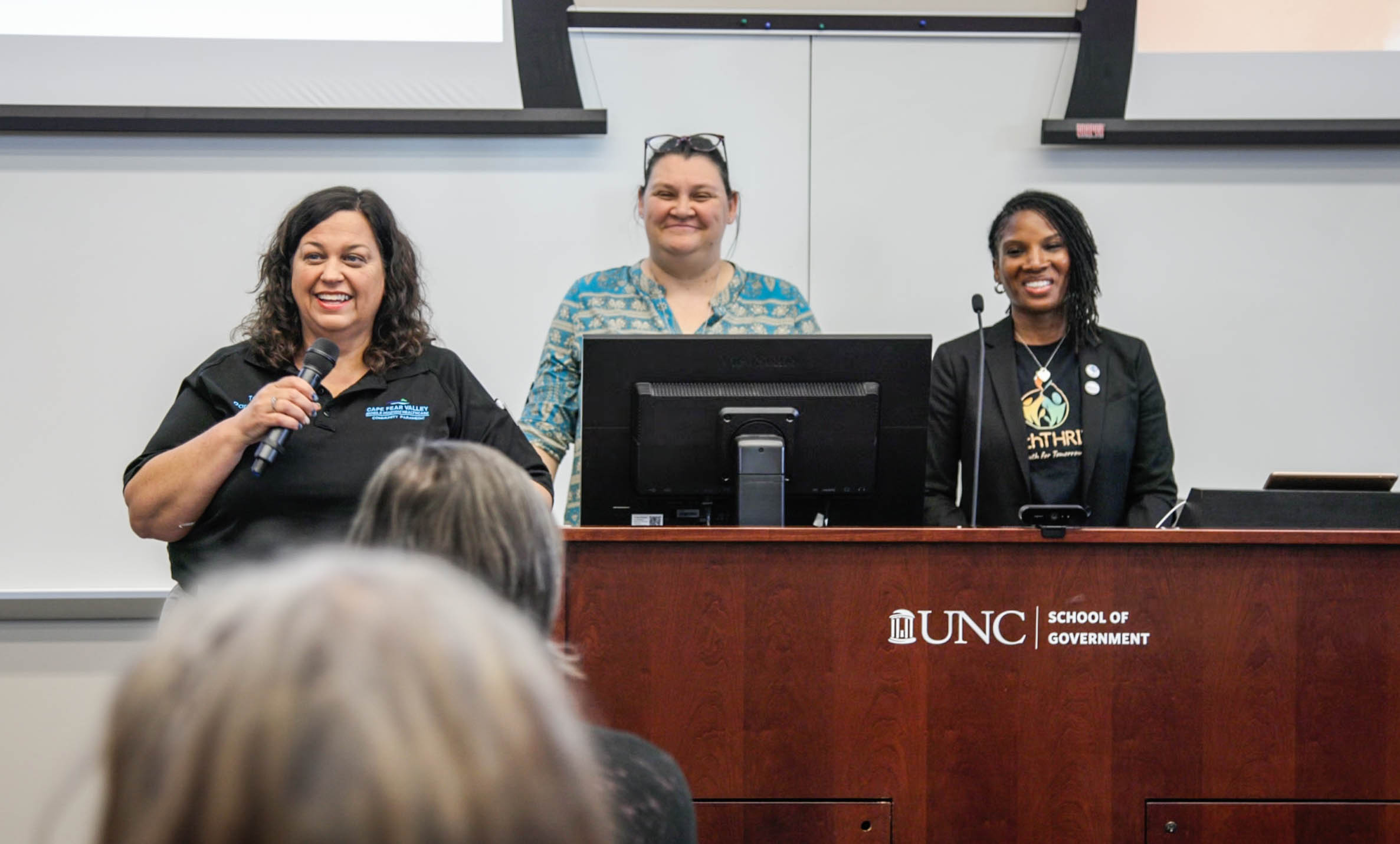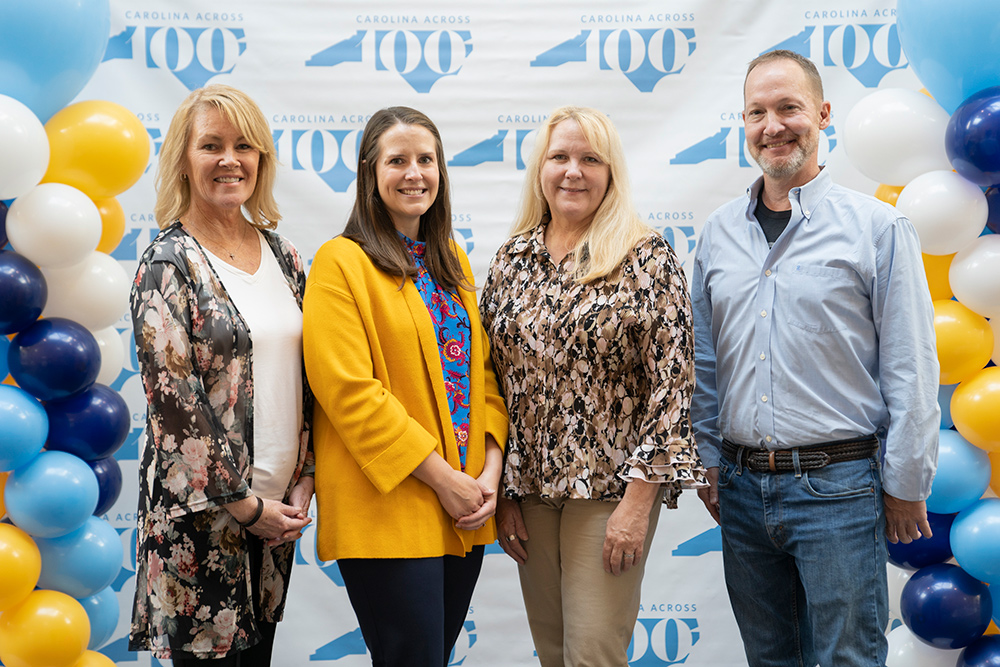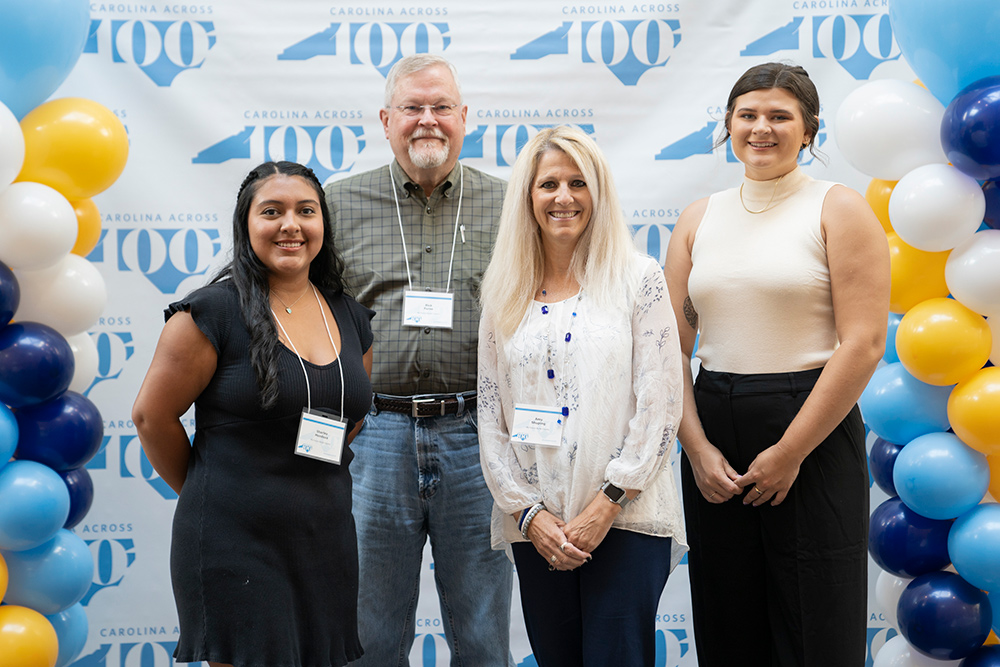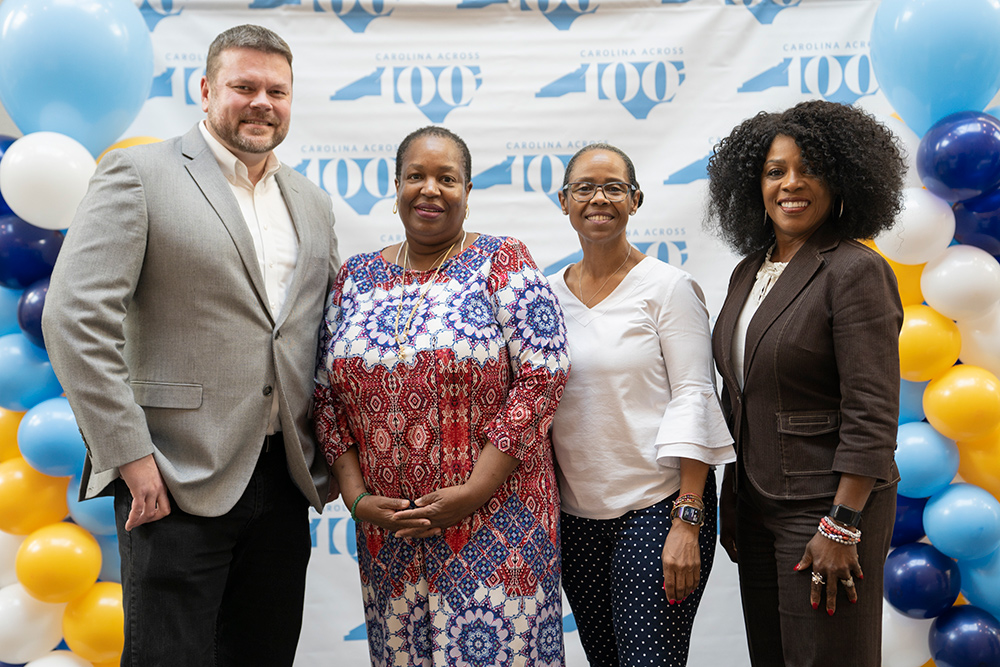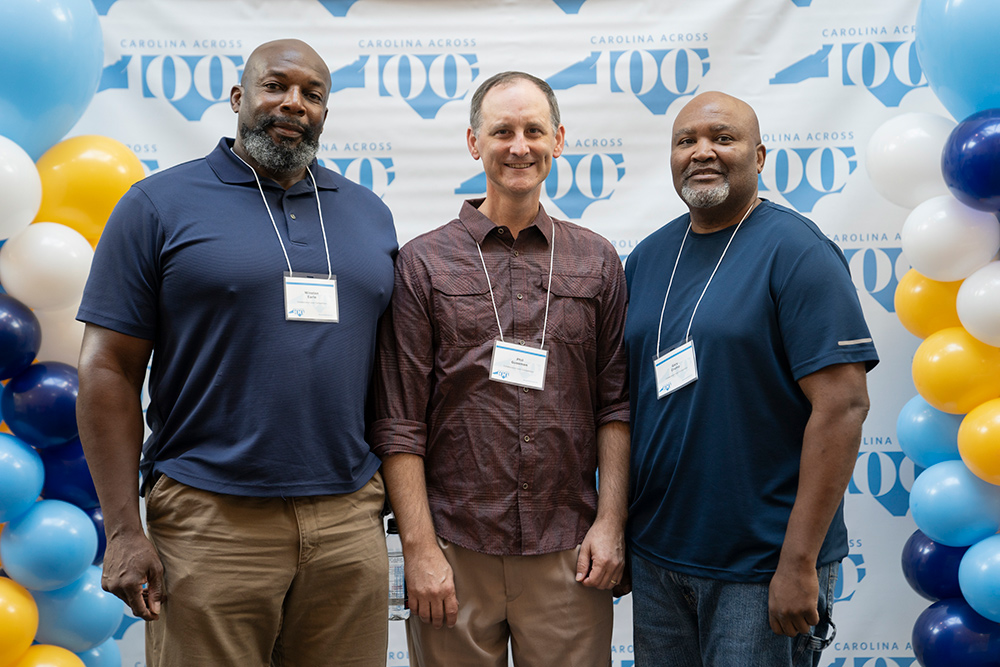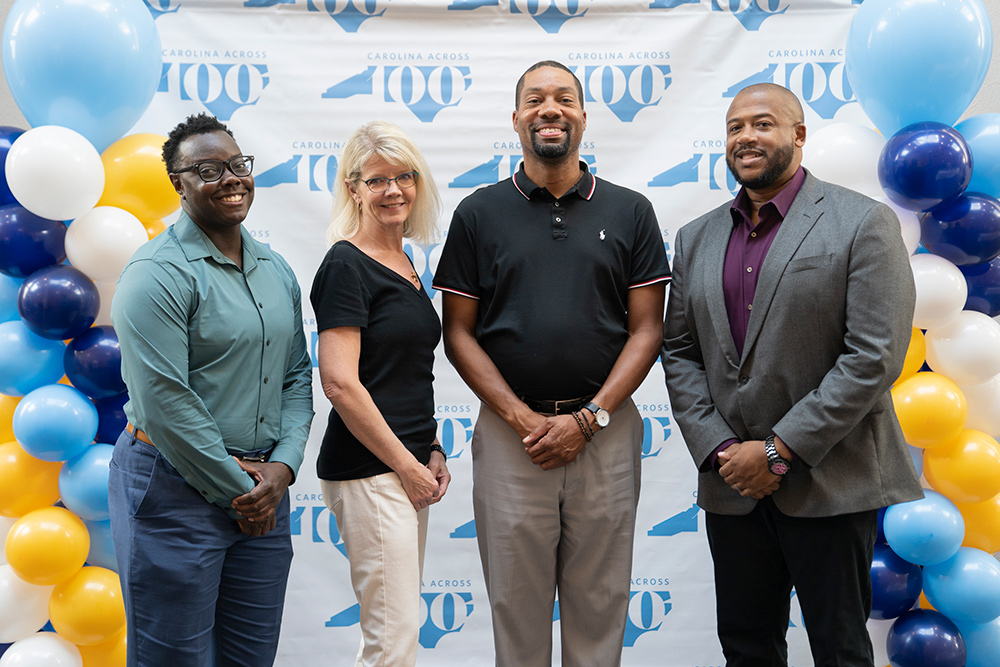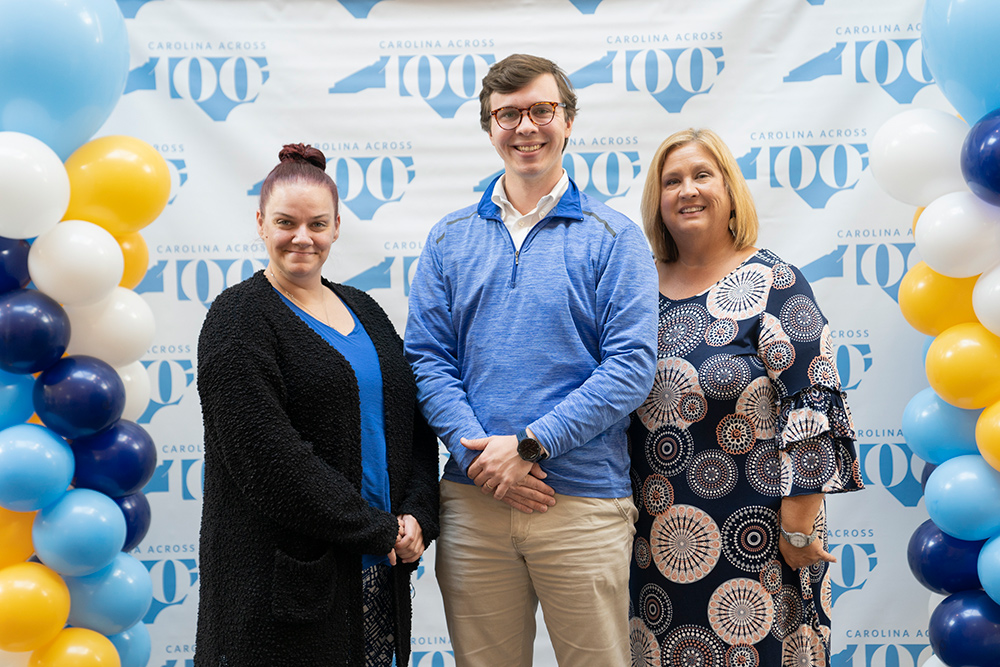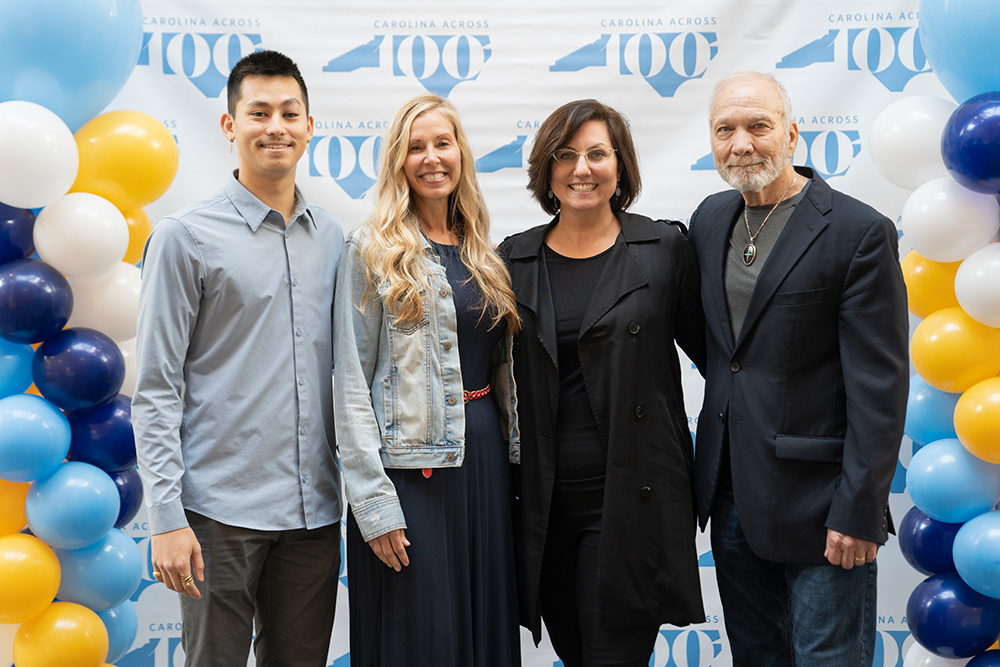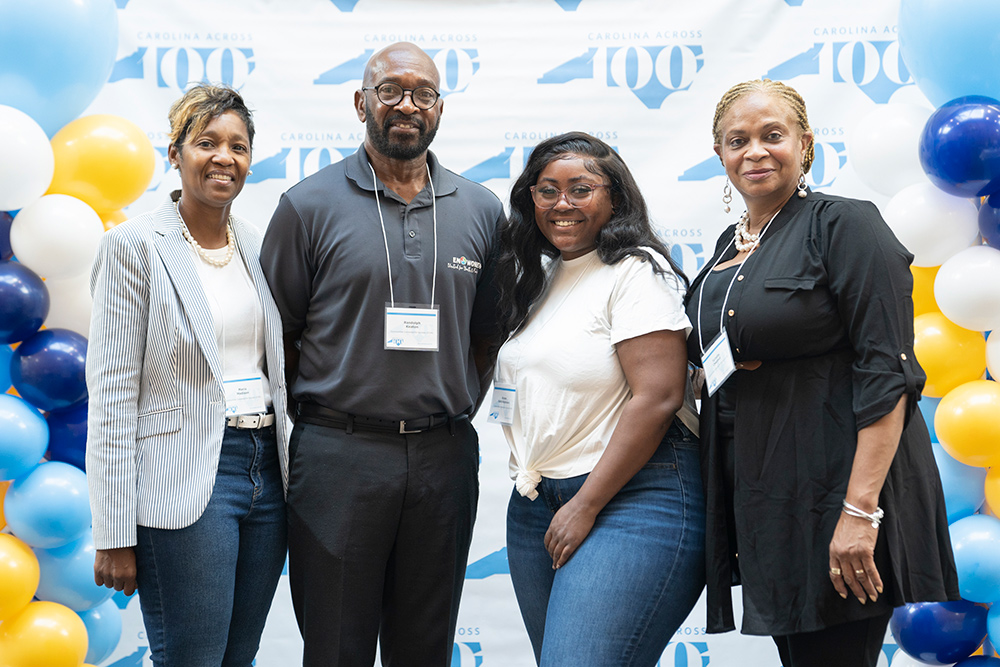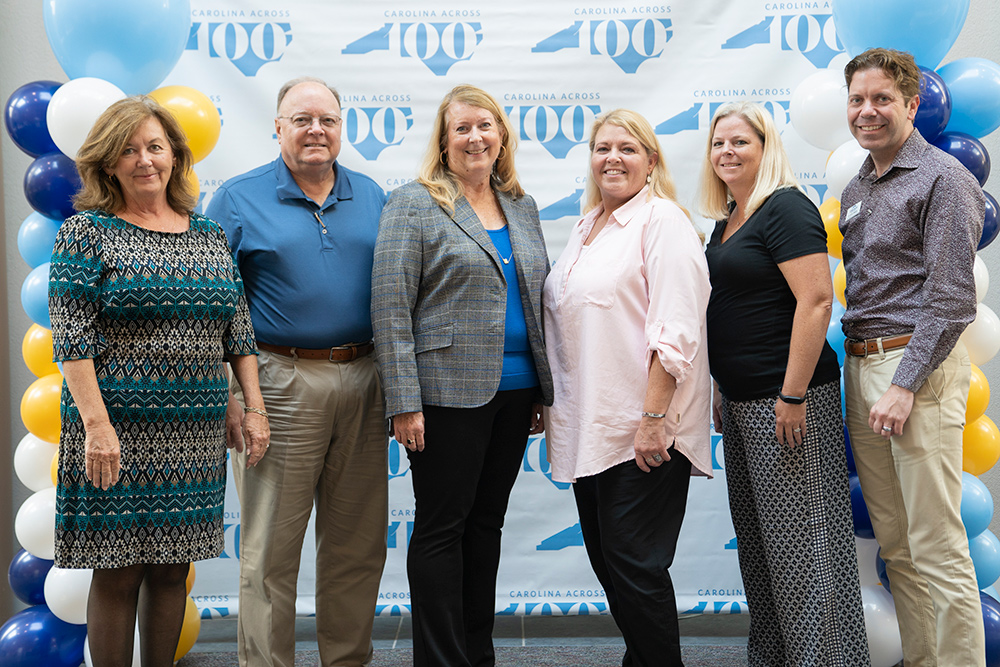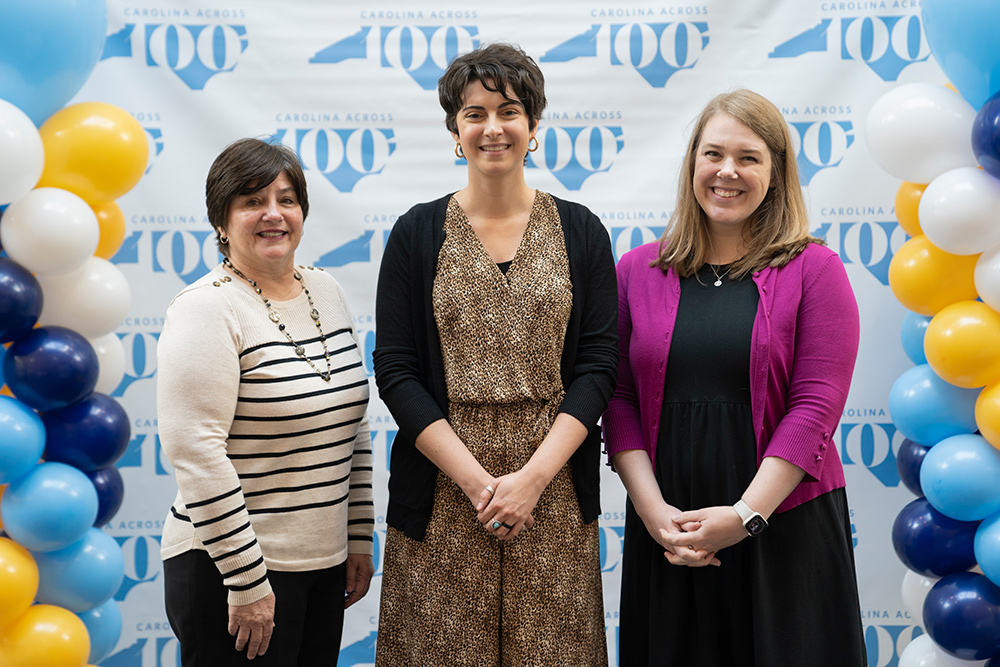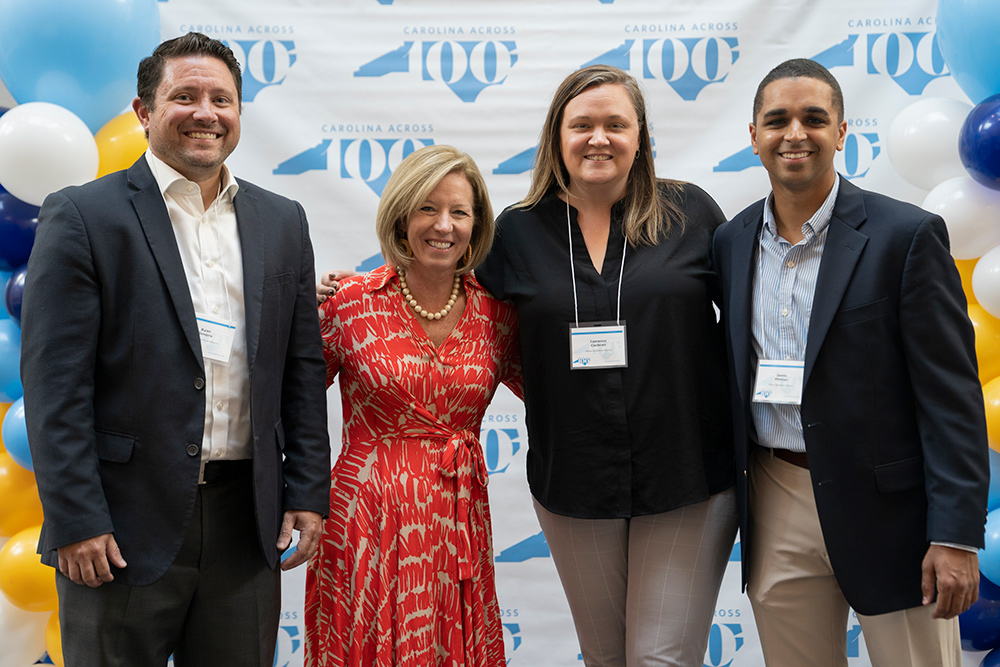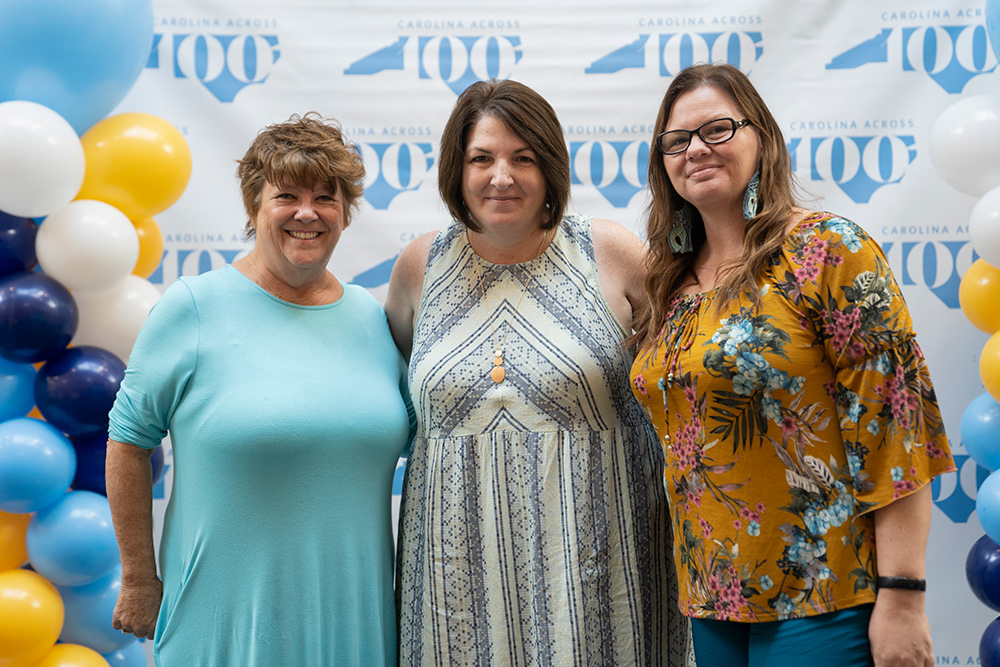15 teams from 24 counties and every part of the state,
partnering to prevent suicide in NC
Our State, Our Wellbeing is a 12-month initiative to identify and implement strategies to improve mental health and reduce the number of suicides in North Carolina, launched by Carolina Across 100 and the UNC Suicide Prevention Institute

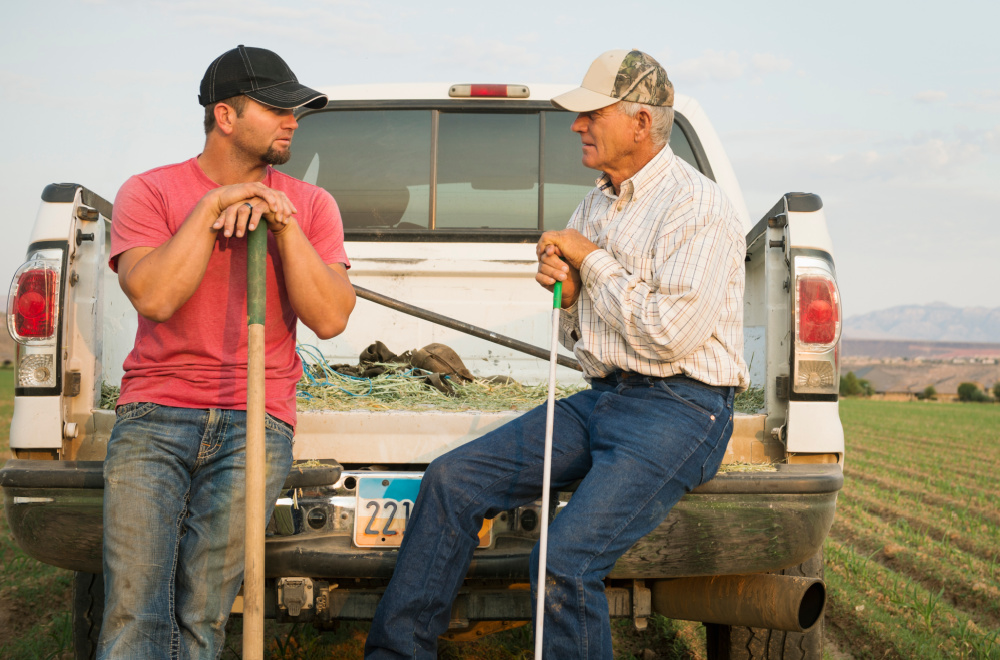

Meet the “Our State, Our Wellbeing” Community Collaboratives
Carolina Across 100 and UNC Suicide Prevention Institute are partnering with 15 communities from every part of North Carolina to address mental health challenges and prevent suicides. The selected teams are composed of health providers, government agencies, educational institutions, faith-based groups, and civic and nonprofit organizations from 24 counties across the state. Learn more about each team below.
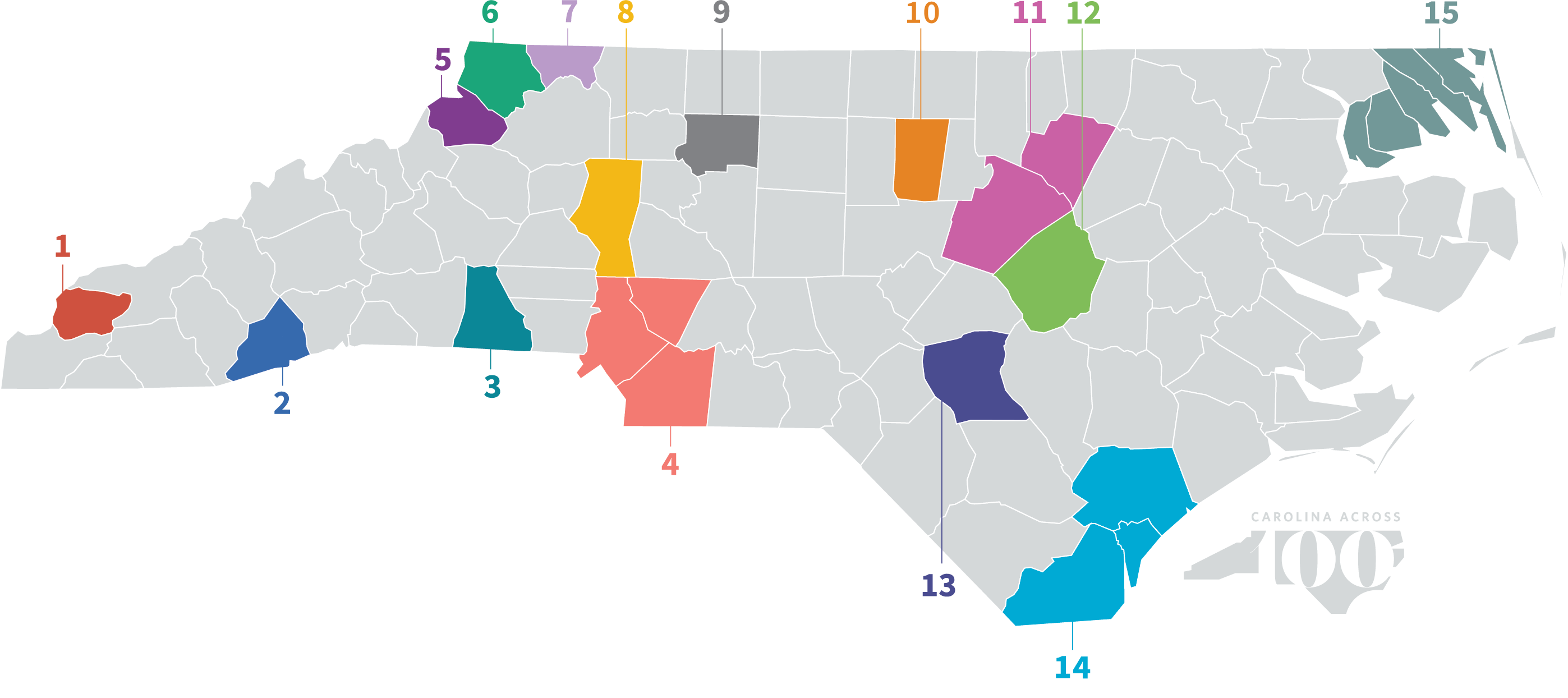
Team Updates
-
August 2023
Kickoff Webinar
Carolina Across 100 welcomed members of 15 community teams to the virtual kickoff event for Our State, Our Wellbeing: Partnering to Prevent Suicide in NC. More than 60 community leaders from across the state joined the webinar. Presenters from ncIMPACT and UNC Suicide Prevention highlighted the 24 counties participating in the new program, shared data and insights on suicide and mental health issues in North Carolina, and previewed activities teams will complete ahead of our first in-person gathering. We look forward to welcoming teams to the School of Government for the first Our State, Our Wellbeing forum on October 24 and 25.
-
October 2023
Forum One
Carolina Across 100 welcomed leaders from 15 community teams to Chapel Hill for the first time for the Our State, Our Wellbeing program. Team members from UNC Suicide Prevention Institute (SPI) and other experts presented sessions on trends in suicide, mental and behavioral health, access to care in North Carolina, and key concepts for suicide prevention. ncIMPACT and SPI also supported the community teams as they worked to establish shared problem definitions, write vision statements for their communities, develop community asset maps, and identify their initial action steps. We look forward to reconnecting with the teams through monthly webinars beginning later in November and bringing the teams back together in Chapel Hill in February.
-
December 2023
Webinar Two
Our State, Our Wellbeing teams gathered for their second webinar. Data experts from NC DHHS taught teams to use publicly available data to find information about suicide and self-harm in their communities, while the UNC Suicide Prevention Institute developed an accompanying resource to identify key data resources to understand suicide in NC.
-
January 2024
Webinar Three
Our State, Our Wellbeing teams gathered for their third webinar. NC DHHS led the Our State, Our Wellbeing teams through a discussion of the state’s comprehensive suicide prevention work. Experts from the Comprehensive Suicide Prevention team offered best practices for messaging around mental health and suicide and highlighted community trainings and resources for suicide prevention available across the state. Find webinar slides and a list of shared resources below.
-
February 2024
Forum Two
Our State, Our Wellbeing teams were back together again at the UNC School of Government for more in-person learning and collaboration. Participants heard from state leaders about major new investments in mental and behavioral health, learned strategies for engaging with different stakeholder groups and refined the action steps they will take to address suicide in their communities. Thank you to Playmakers Repertory Company for offering teams a performance of Every Brilliant Thing.
-
March 2024
Webinar Four
UNC School of Education’s Dr. Dorothy Espelage, Alberto Valido Delgado, and Luz Robinson discussed their work implementing Sources of Strength, a peer-driven, strengths-based model to promote mental health, in 11 North Carolina school districts.
-
April 2024
Forum Three
Teams gathered at the UNC School of Government on April 16-17 for their third form. Their time together was spent moving sustainability plans forward to help continue to build local momentum after the UNC-Chapel Hill state-wide program ends. Teams worked to set numeric goals and make plans to allocate their work across their teams by bringing in new partners to ensure progress. A resource fair connected team members with UNC campus resources. Teams delighted in resources created by UNC students to support their work on suicide prevention education.


